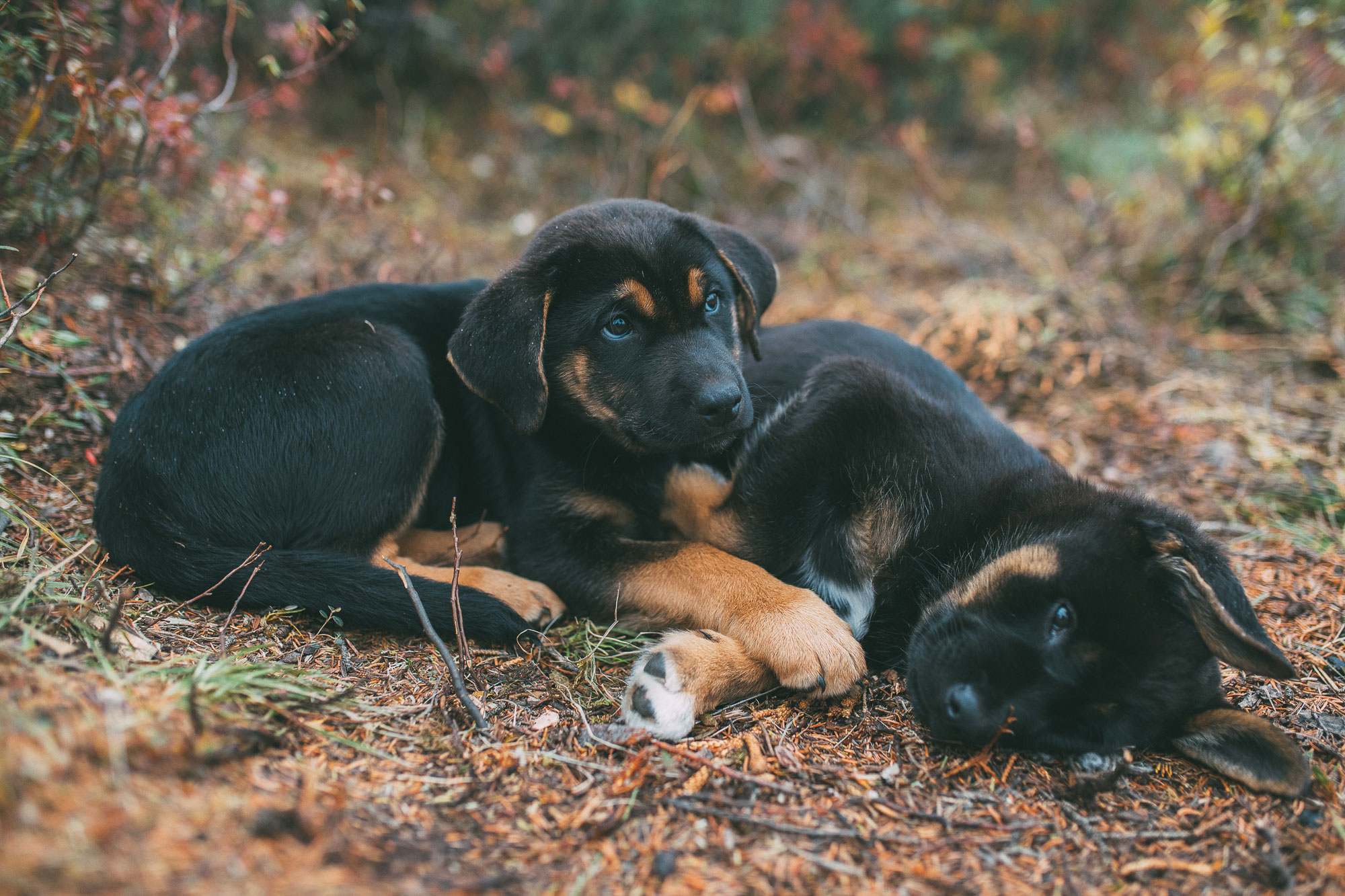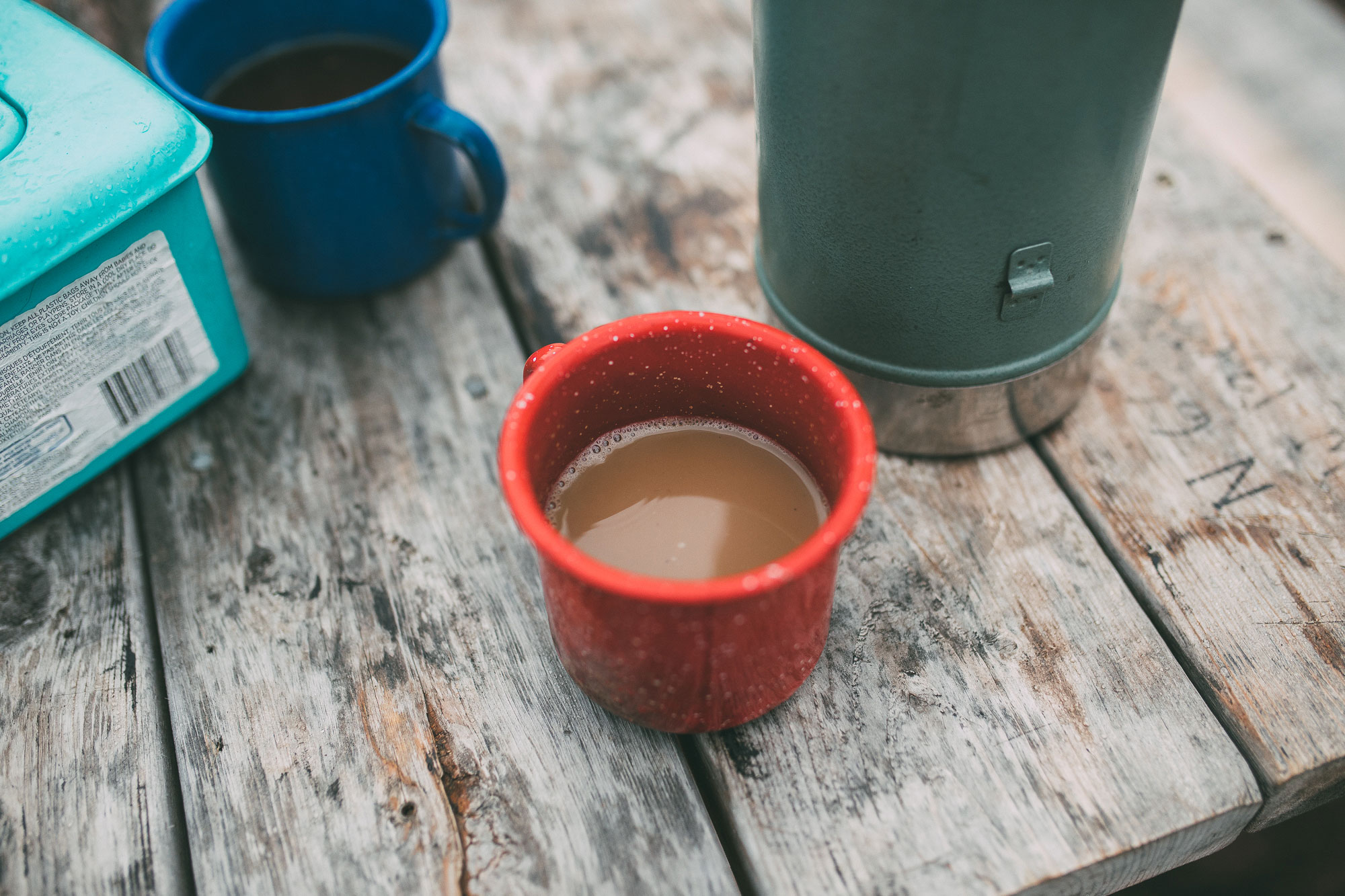I smelled the woodsmoke before I saw David’s camp. We were on a lonely stretch of gravel highway north of Eagle Plains, running alongside the Richardson Mountains that mark the border between the Yukon and Northwest Territories. Spruce trees dotted the landscape, more numerous in the valleys of seasonal creeks.
David was in the middle of his camp, chopping firewood. I could see a few cared-for dogs and a couple different shelters. The hollow structure of a tipi stood nestled among the spruce in the distance. Asad and I climbed down from the highway and offered to trade him split firewood for a story.
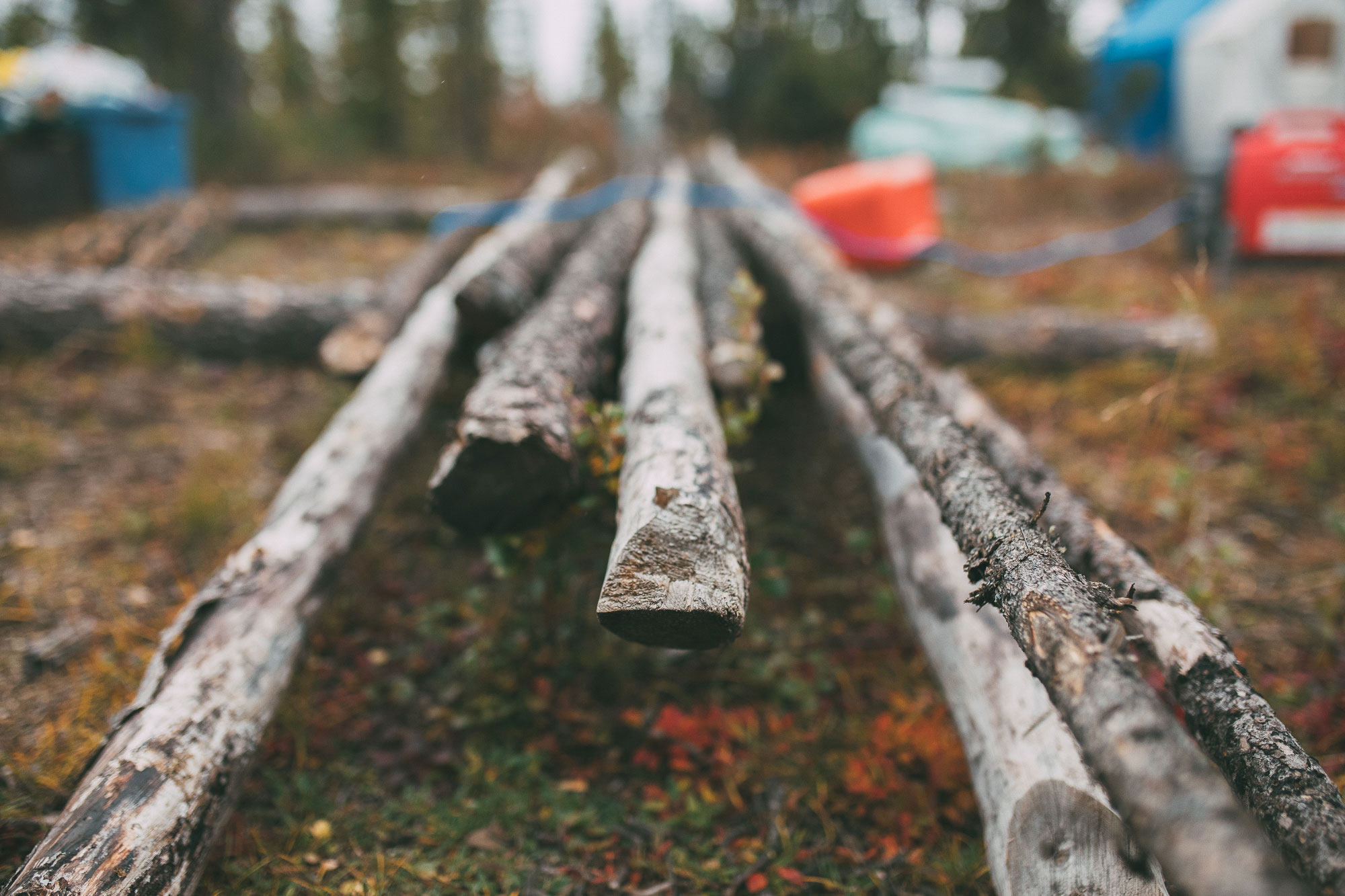
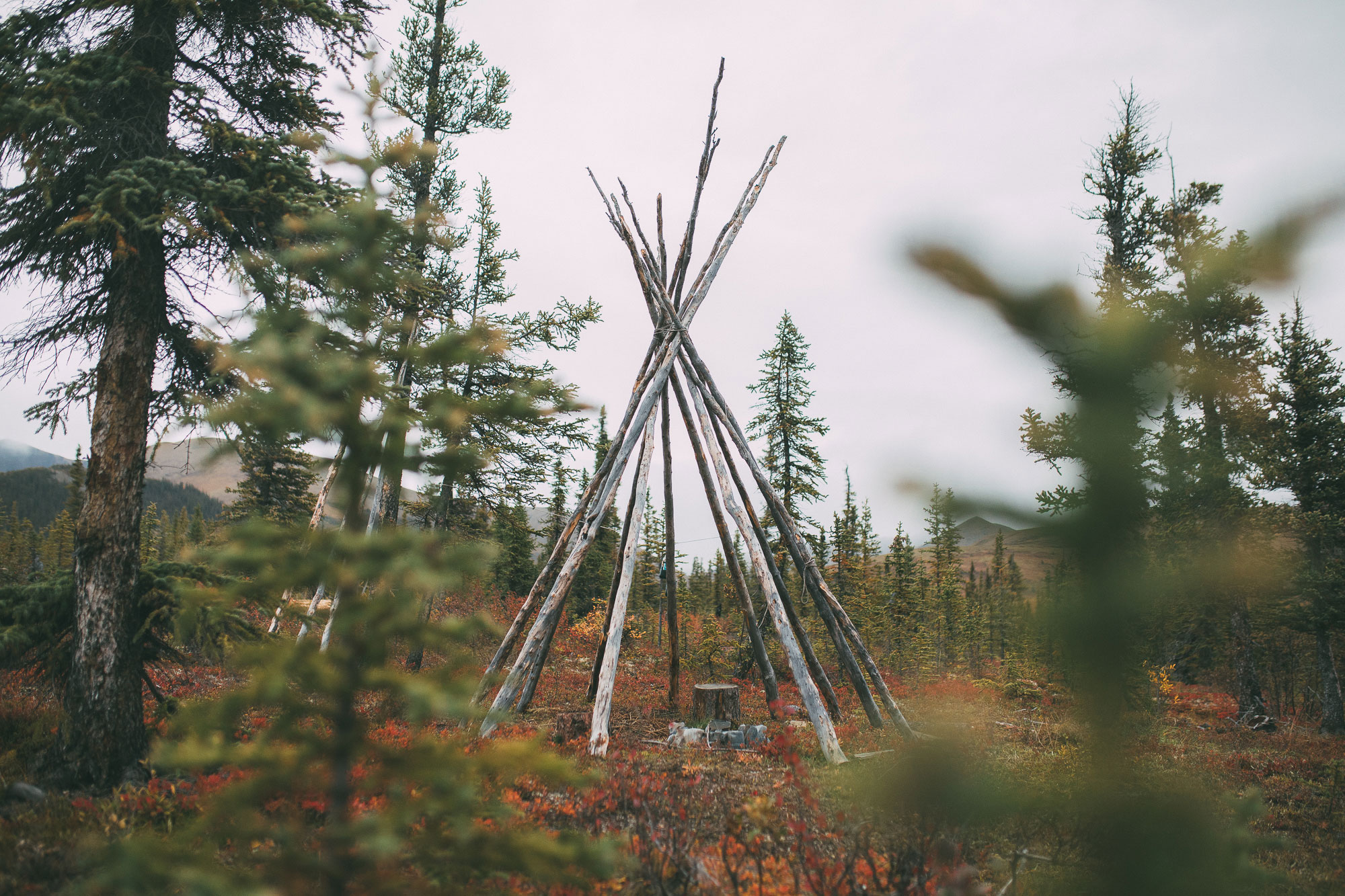
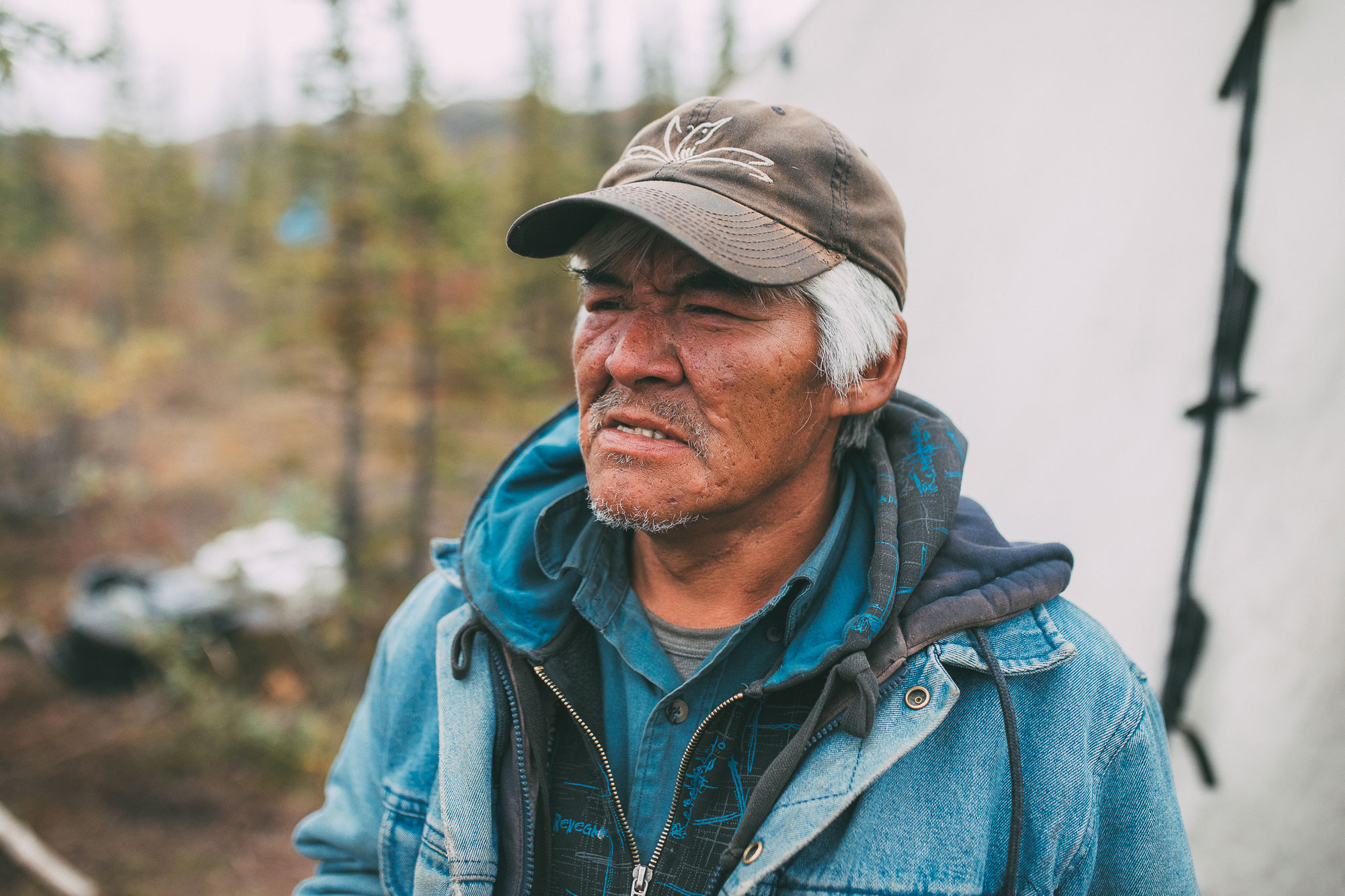
“Hello, I’m David Maxwell, at Caribou River at kilometre 420 up the Dempster Highway. I’ve been here since June 10.”
David described the different building projects that he was working on for his camp including a log cabin and a wall tent with a canvas from Fort MacPherson. He said once he finished his last tent frame he was going to build a meat cache out of logs.
“I’ll be trapping along the river. That creek goes down into Whitestone River, and then down over to the Porcupine. I’ll be trapping marten and lynx. Gonna have maybe two tents, then come back. Just run traps every three days, that’s it.”
David spent the last eleven seasons working on a trapline north of Kluane National Park. This summer he decided to build a trapline farther north, closer to his home in Old Crow.
“Building a couple cabins, a shed, collecting firewood, teaching those young guys how to go to sleep early, wake up early, cook; just survival off the land, which they all enjoy.” I asked him about the young guys, and he elaborated. “I take young people out, between sixteen and thirty years of age. They got nobody to teach ‘em, so they ask me and I go and help them out.”
“Well they’re caught, just like I was, they’re caught between doing drugs and alcohol, and all kinds of activities that’s not very healthy. And they enjoy going out on the land but they don’t have anybody to take them.”
I asked if he saw trapping and spending time on the land as a return to something in the past, or a step toward the future.
“I see it as a step forwards something in the future,” he said. “We got to heal up, but we can’t just heal up just like that. We have to understand each symptom, and go through it step by step. One of the steps is to go out on the land and get clean and sober up. Then after that, they know what to do to get help with alcoholism, drug use. There’s lots of drug peddlars out there, there’s lots of bootleggers.”
“But on the land it’s different. You’re at peace, and it’s peaceful, and you can rest and eat and exercise.”
“And I guess that’s about it on that.”
